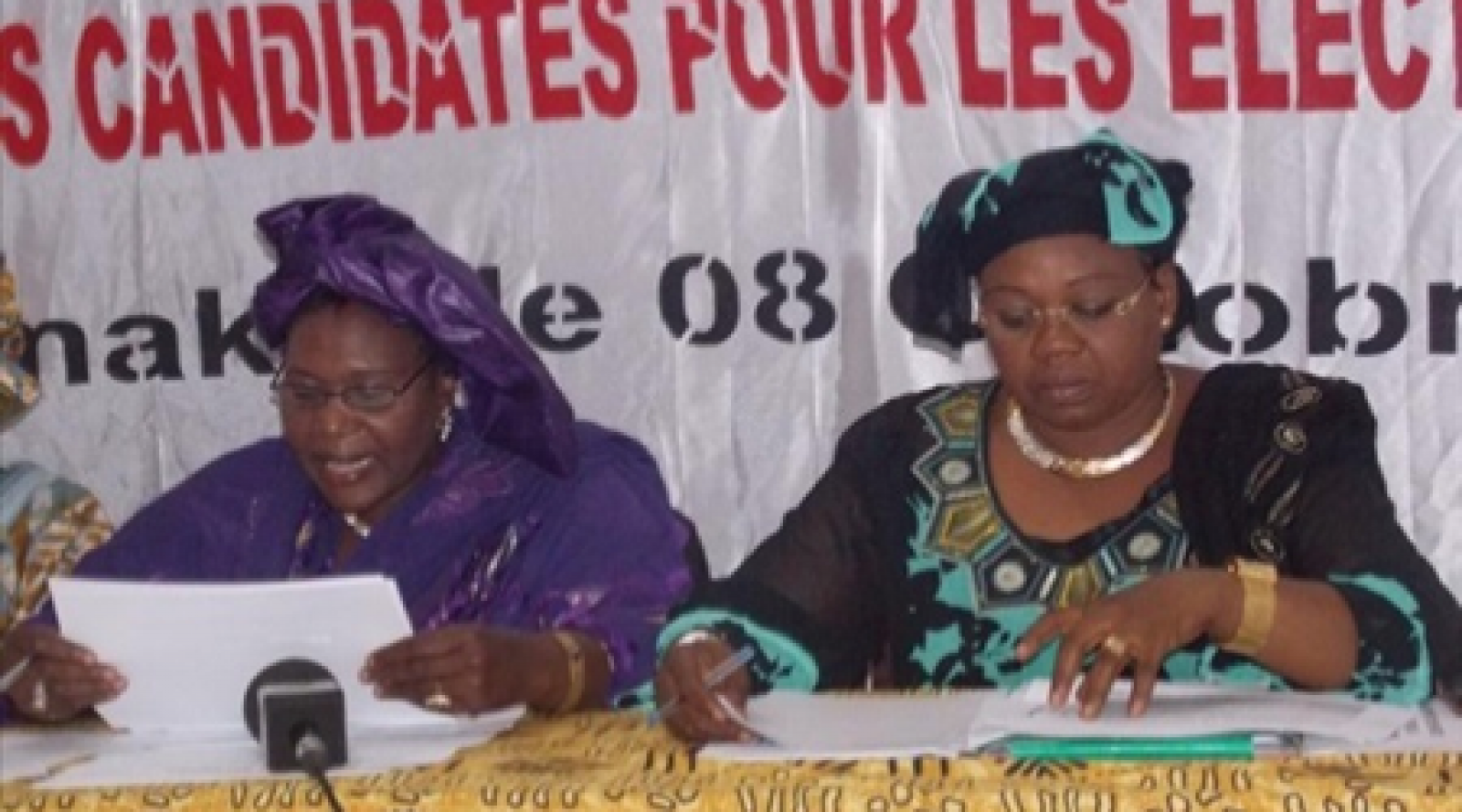
SHARE
In early February in Bamako, Mali, a group of local gender and legal experts, including a member of the Supreme Court and a former member of parliament, came together to draft a law aimed at improving the representation of women in Mali’s government. The proposed statute included a quota requirement that at least 30 percent of each political party’s candidates in national and local elections be women. The 30 percent provision would also apply to nominations for government positions.
This draft has the support of Mali’s Minister for the Promotion of Women, Family and Children, who is working with the Consultative Framework for Women in the Malian Political Parties (CCFPP), a cross-party coalition of women, and local civic organizations to persuade the National Assembly to pass the law. NDI is providing technical assistance.
In years past, a coalition of 17 women’s groups, human rights organizations and political parties has twice asked the parliament to consider quota proposals, but without success.
These recent efforts to increase the number of women in government stem from a two-day program last December put on by NDI and the CCFPP during which civil society activists and political party leaders discussed gender quota laws in other countries and developed recommendations for one in Mali.
The program followed 2013 parliamentary elections in which women constituted just 14 percent of candidates and won only 14 out of 147 seats, one less than in the last elections in 2007.
With 80 activists and leaders from across Mali in attendance, the program looked at different types of gender quotas around the world, including in West Africa, and prior attempts to pass a quota law in Mali. The group also heard from Moustapha Cisse, the former president of the National Election Commission of Mali, on Malian laws and international conventions relevant to women’s equality.
On the program’s second day, participants broke into four groups to discuss the best ways to structure an affirmative action law to increase the number of women in elected positions.
Two groups favored a system reserving some number of seats in the parliament for women, while the other two proposed a system mandating parties to include a certain percentage of women on their candidate lists. Noting the experiences of other countries where party-list mandates helped increase the number of women candidates but did little to raise the percentage of women elected, the latter groups said the Malian system should incorporate a “zippered placement,” requiring party lists to alternate between men and women candidates to ensure women are elected.
The groups’ recommendations formed the basis of the law that the gender and legal experts drafted in February, which includes a zippered placement system.
Participants at the December program also advocated for training programs on political leadership skills, including public speaking and advocacy, to help women candidates. In addition, because women are often unable to pay the costs associated with gaining a nomination and campaigning, several suggested training women candidates on fundraising and requiring that parties provide them with financial support.
NDI organized the two-day program with funding from UN Women and continues to support initiatives advancing women’s political participation in Mali with funding from the Royal Danish Embassy.
Read more:
- Leaders Across Mali Commit to Peaceful, Credible Election»
- Promoting the AU Charter on Democracy, Elections and Governance in West Africa»
- NDI's Christopher Fomunyoh Testifies on Mali Before U.S. Senate Committee on Foreign Relations»
Published March 27, 2014


